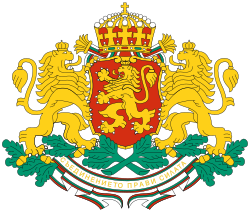Aftermath
The BZNS government annulled the election of 13 deputies – nine of them Communists – which gave them a majority in parliament. [2] The government oversaw significant agrarian reforms - the amount of state-owned land was increased, household landownership was limited to 300 decars, land was distributed to refugees from Thrace and Macedonia, while salaries for members of the intelligentsia (teachers, doctors, lawyers and the military) were decreased. The Labor Service Act required 12 months of mandatory community service for male citizens over 20 and 6 months for female citizens over 16. Bulgaria became the first former member of the Central Powers to be accepted in th the League of Nations in 1920. Due to the government's friendly relationship with Yugoslavia (later resulting in the signing of the Treaty of Niš), defense minister Alexander Dimitrov was murdered by the VMRO in 1921. Church institutions were placed under state control in 1922. The leaders of the opposition Constitutional Bloc were arrested and given large prison sentences. [5] In September 1922 Interior minister Rayko Daskalov proposed an electoral reform that would make the results proportional in each administrative municipality, as opposed to province, which would result in a larger majority for the more consolidated BZNS. The government resigned and snap elections were called shortly after the law was approved in late February 1923. [6]
This page is based on this
Wikipedia article Text is available under the
CC BY-SA 4.0 license; additional terms may apply.
Images, videos and audio are available under their respective licenses.

